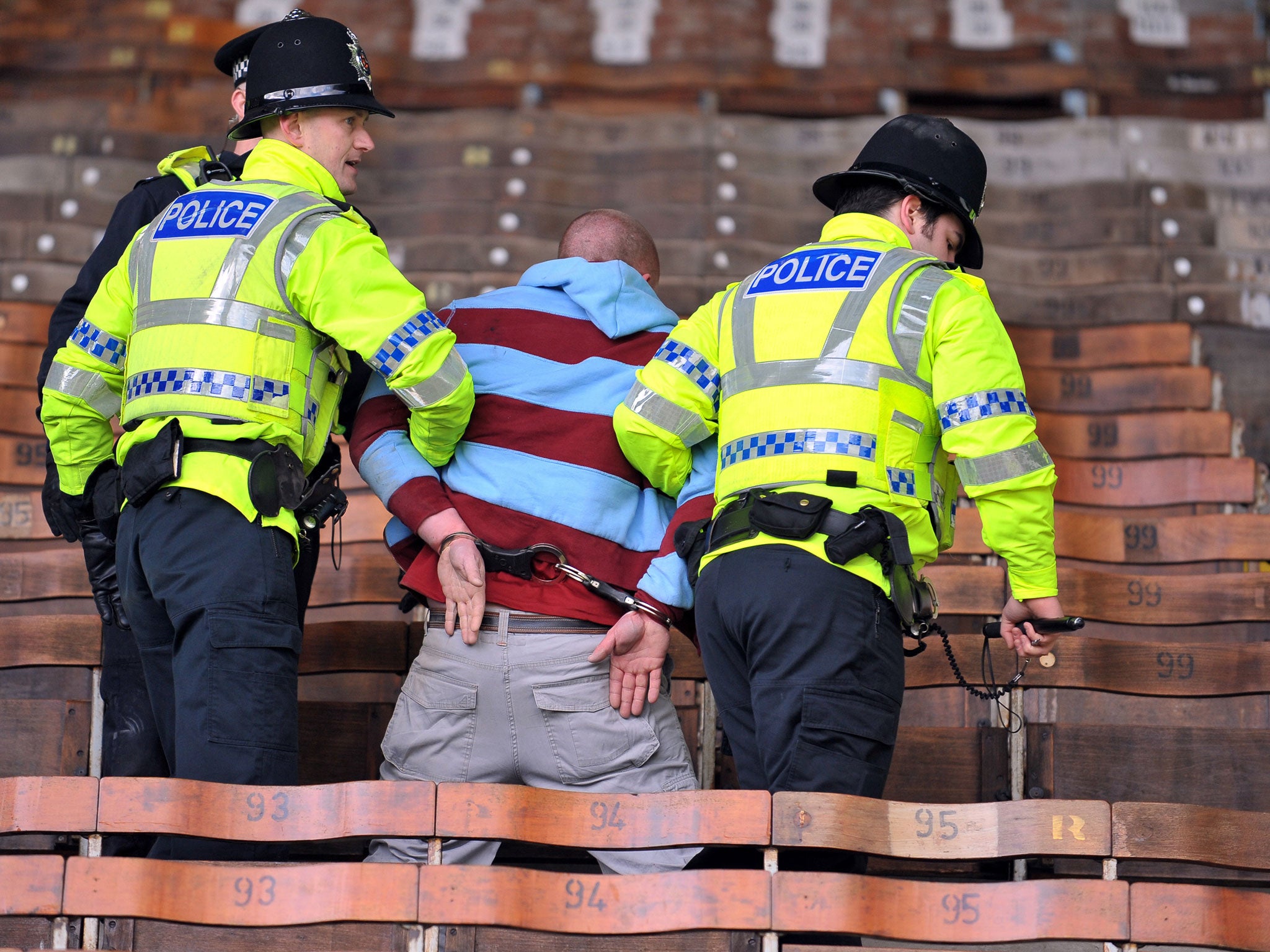Police 'paid' to seek football banning orders
Growth in curfew orders as funding gives forces incentive to bring civil cases

As the Premier League kicked off a new football season yesterday, lawyers and football supporters have accused the police of creating a "banning order industry" that unfairly targets innocent fans. Hardline measures to control violence at matches are being wrongly applied and overused, researchers claim.
As a result, fans without any criminal convictions and scant knowledge of their legal rights are finding themselves barred from all stadiums for up to 10 years as the number of football banning orders rises. According to the most recent Home Office figures, in November 2012 there were 2,750 people serving banning orders in England and Wales.
Figures show that in 184 civil banning order applications made by Merseyside, Cleveland and South Wales police forces between 2002 and 2012, 165 resulted in a banning order being issued.
Those monitoring the spiralling use of such orders say financial incentives may be behind it. Police, under increasing budgtary pressures, get increased funding from the Home Office for applying for the orders. Criminal convictions do not bring them financial benefits.
Most of the costs of policing football and preparing criminal cases for court are borne by police forces out of their ordinary budgets. However, some of the costs of preparing civil banning order applications are funded separately by the Home Office.
Home Office figures show this funding was worth an average of £747,139 per year from 2008/09. Although these figures are small compared to the total budgets of police forces, they make a significant contribution to the budgets of their Football Intelligence Units.
Amanda Jacks, a caseworker at the Football Supporters' Federation, said: "I have sat through cases when it has been clear the magistrates or district judges are not aware of the standard of proof they should be applying. Once or twice I've been left with the impression the bench think, 'Ah, football hooligan, must be guilty' before the defence has even spoken."
She added: "Fans may be under surveillance and evidence used as to their behaviour that is up to 10 years old. Data is freely shared between clubs and police, and invariably the fan will be unaware that such information is being retained and therefore not able to challenge it. Evidence may include being ejected from a stadium for breaking ground regulations or gesturing and shouting to opposing fans – something which isn't necessarily a genuine threat and may be little more than bravado."
Matt Hopkins, a lecturer in criminology at the University of Leicester, claims the funding arrangement means that there is "a banning industry" and that the UK Football Policing Unit (UKFPU), a joint body controlled by the Home Office and the Association of Chief Police Officers (ACPO), effectively sets targets for the number of civil banning orders that must be issued each year.
Officers may feel that their jobs depend on meeting these targets. Mr Hopkins said that one officer had told him: "If we don't reach the target set by the UKFPU, we will cause a problem and we won't be here."
Melanie Cooke, a solicitor who specialises in banning orders, said: "I am concerned by the possibility of there being indirect financial incentives for football intelligence officers to pursue banning orders. This may explain why some applications I've seen are barely worth the paper they're written on."
In addition, some individual posts – for instance two football intelligence officers in the South Wales Police – are funded directly by the Home Office. This funding is dependent on how many fans are successfully banned, according to a response by South Wales Police to a Freedom of Information request.
Deputy Chief Constable Andy Holt, ACPO's football spokesman, said: "Banning orders play a key role in preventing disorder at football matches. When someone is convicted of a crime that took place at a football match, the police can apply to the courts for an additional ban. If someone hasn't been charged with a crime but the police have evidence that shows that they have contributed to violence at matches, they can apply for a civil banning order. Far more banning orders following conviction are given out than civil orders. Both of these orders are tested in court and each case must stand up to that scrutiny."
A Home Office spokesman said: "There is no evidence to support these claims. Football banning orders can only be made by a court when someone has been convicted of a relevant offence or it has been proved they contributed to violence. Magistrates must also be satisfied it will prevent future disorder."
